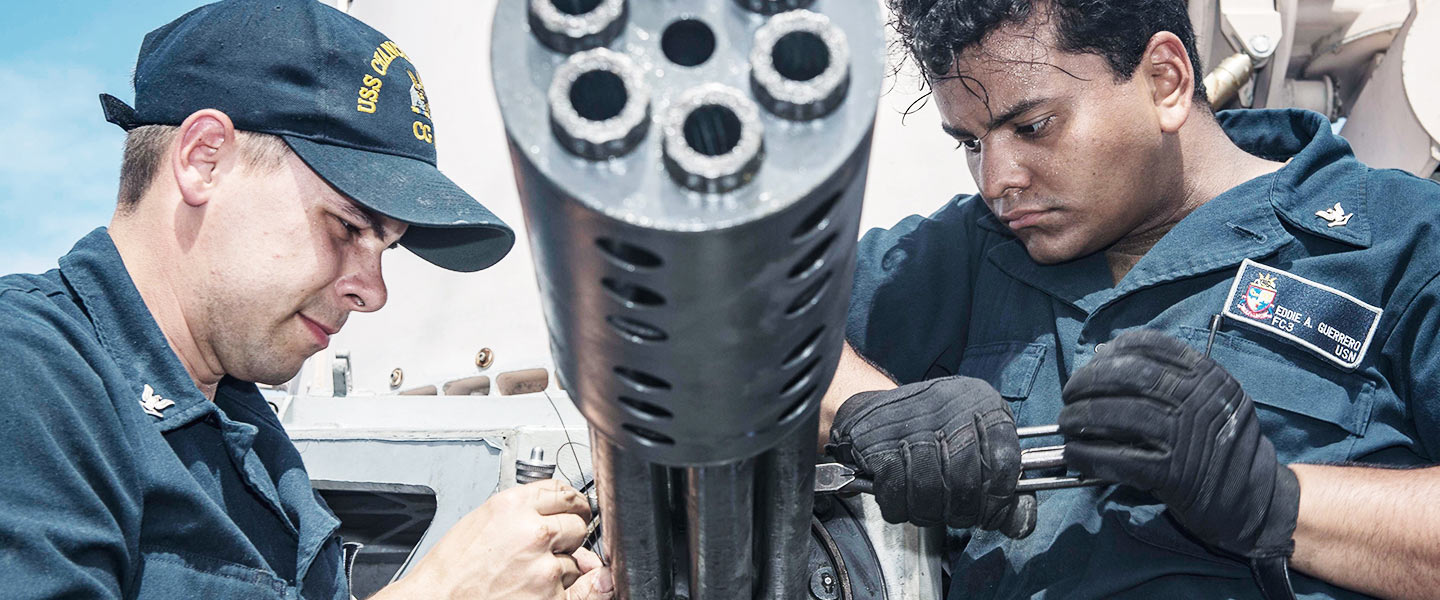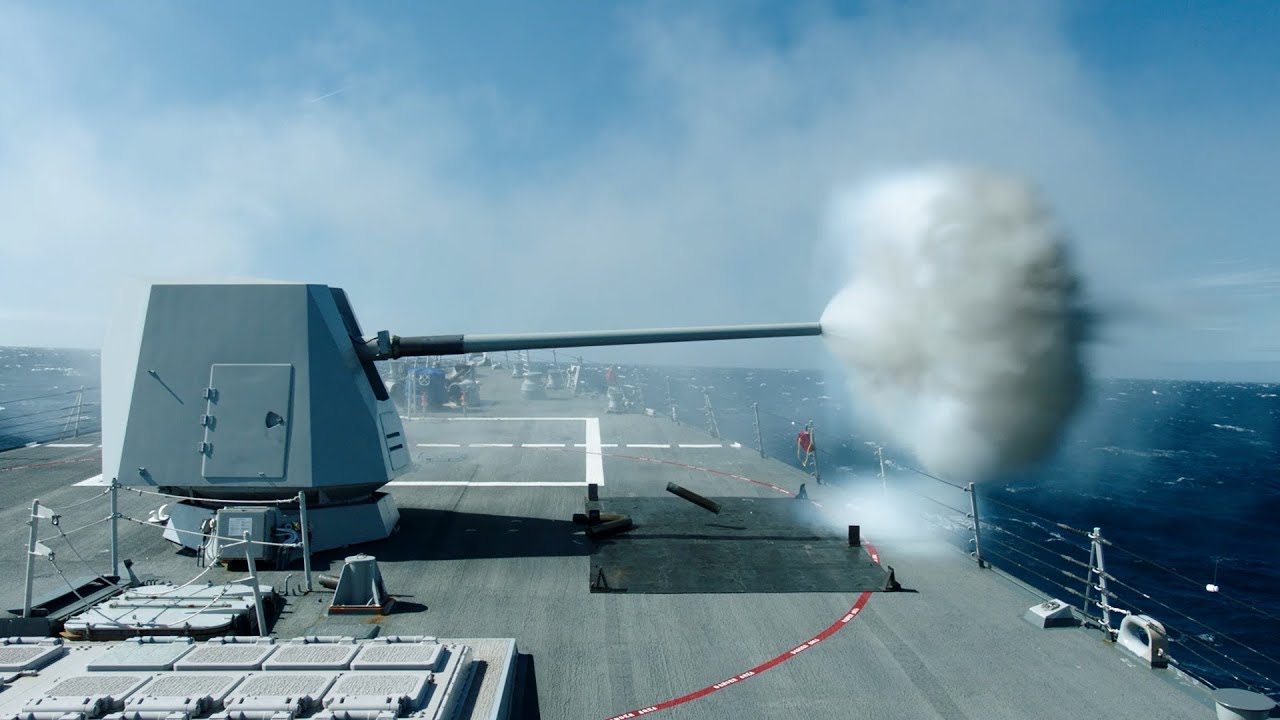What to Expect
More Information
Responsibilities
Fire Controlmen provide system employment recommendations, perform organizational and intermediate maintenance on digital computer equipment, subsystems and systems and operate and maintain combat and weapons direction systems. On any given day, they may:
- Inspect, test, align and repair micro/minicomputers and associated peripheral equipment, data conversion and display equipment and data terminal equipment
- Make analysis for detailed systems, computer programs, electronics and electronic casualty control
- Operate built-in and external test equipment; load, initialize and run diagnostics
- Operate the Aegis Weapon System, which includes one of the most powerful air-search radars, deployed at sea around the world, the SPY-1
- Control the MK99 Fire Control System, used for terminal guidance of Standard Missiles and the Aegis Computer Suite
- Run performance and testing routines for digital computer equipment, digital systems and overall combat systems
Work Environment
Where there is a need to defend, there is a need for Fire Controlmen.
You’ll have the opportunity to work onboard the Navy’s fleet of surface ships including aircraft carriers and Aegis cruisers as well as at repair activities ashore. Regarding potential locations, your job can take you virtually anywhere around the globe. In this weapons engineering role, the work is challenging, technical and requires a steady hand.
Training & Advancement
Upon completion of initial training at Recruit Training Command Great Lakes, (known as Boot Camp), those pursuing a Fire Controlman role will report to Apprentice Technical Training and FC Strand in Great Lakes, IL, where they receive 31 weeks of formal Navy technical training. Here, they develop a working knowledge of basic electronics and electronic circuitry, safety, digital theory, microcomputers, fiber optics, test equipment, trouble-shooting techniques and procedures, 2-D and 3-D radar, missile and gun system ballistics and fire control basics.
After "A" school FCs continue on to advanced "C" school. School lengths and content vary, but many colleges and universities offer college credits for these Navy courses. Throughout your career as an FC, you will alternate between service at shore commands and aboard ships in the U.S. and overseas.
Promotion opportunities are regularly available but competitive and based on performance. It’s also important to note that specialized training received and work experience gained in the course of service can lead to valuable credentialing and occupational opportunities in related fields in the civilian sector.
Education Opportunities
Beyond offering access to professional credentials and certifications, Navy technical and operational training for a Fire Controlman can translate to credit hours toward a bachelor’s or associate degree through the American Council on Education.
You may also continue your education through undergraduate degree opportunities like the Navy College Program and Tuition Assistance and the Post-9/11 GI Bill.
Qualifications & Requirements
A high-school diploma or equivalent is required to become an Enlisted Sailor and Fire Controlman in the Navy. Fire Controlmen must be U.S. citizens eligible to meet security clearance requirements. Important qualifications include knowledge of arithmetic, the capability to understand modern computing devices, the ability to speak and write well, function as a member of a team, do detailed work and keep accurate records. Additionally, they must possess some physical strength, good manual dexterity and normal color perception.
General qualifications may vary depending upon whether you’re currently serving, whether you've served before or whether you've never served before.
Part-Time Opportunities
There are part-time opportunities available as a Fire Controlman.
Serving part-time as a Navy Reserve Sailor, your duties will be carried out during your scheduled drilling and training periods. During monthly drilling, Fire Controlmen in the Navy Reserve typically work at a location close to their homes.
For annual training, Fire Controlmen may serve anywhere in the world, whether on a ship at sea or at bases and installations on shore.
Take a moment to learn more about the general roles and responsibilities of Navy Reserve Sailors.
Most of what you do in the Navy Reserve is considered training. The basic Navy Reserve commitment involves training a minimum of one weekend a month (referred to as drilling) and two weeks a year (referred to as Annual Training) – or the equivalent of that.
Fire Controlmen in the Navy Reserve serve in an Enlisted role.
Before receiving the ongoing professional training that comes with the job, initial training requirements must be met.
For current or former military Enlisted servicemembers, prior experience satisfies the initial Recruit Training requirement, so you will not need to go through Boot Camp again.
For those without prior military experience, you will need to meet the initial Recruit Training requirement by attending Boot Camp in Great Lakes, IL. This training course will prepare you for service in the Navy Reserve and count as your first Annual Training.

































































































































